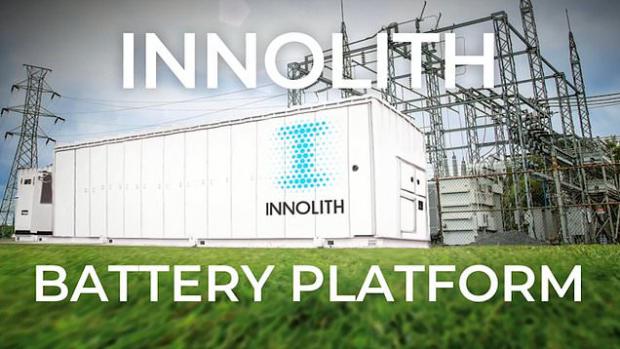
Breaking News
 Palantir kills people? But Who's Really Pushing the Buttons?
Palantir kills people? But Who's Really Pushing the Buttons?
 'Big Short' investor Michael Burry sounds alarm on AI bubble that's 'too big to save
'Big Short' investor Michael Burry sounds alarm on AI bubble that's 'too big to save
 2026-01-21 -- Ernest Hancock interviews Professor James Corbett (Corbett Report)
2026-01-21 -- Ernest Hancock interviews Professor James Corbett (Corbett Report)
 Joe rogan reacts to the Godfather of Ai Geoffrey Hinton talk of his creation
Joe rogan reacts to the Godfather of Ai Geoffrey Hinton talk of his creation
Top Tech News
 The day of the tactical laser weapon arrives
The day of the tactical laser weapon arrives
 'ELITE': The Palantir App ICE Uses to Find Neighborhoods to Raid
'ELITE': The Palantir App ICE Uses to Find Neighborhoods to Raid
 Solar Just Took a Huge Leap Forward!- CallSun 215 Anti Shade Panel
Solar Just Took a Huge Leap Forward!- CallSun 215 Anti Shade Panel
 XAI Grok 4.20 and OpenAI GPT 5.2 Are Solving Significant Previously Unsolved Math Proofs
XAI Grok 4.20 and OpenAI GPT 5.2 Are Solving Significant Previously Unsolved Math Proofs
 Watch: World's fastest drone hits 408 mph to reclaim speed record
Watch: World's fastest drone hits 408 mph to reclaim speed record
 Ukrainian robot soldier holds off Russian forces by itself in six-week battle
Ukrainian robot soldier holds off Russian forces by itself in six-week battle
 NASA announces strongest evidence yet for ancient life on Mars
NASA announces strongest evidence yet for ancient life on Mars
 Caltech has successfully demonstrated wireless energy transfer...
Caltech has successfully demonstrated wireless energy transfer...
 The TZLA Plasma Files: The Secret Health Sovereignty Tech That Uncle Trump And The CIA Tried To Bury
The TZLA Plasma Files: The Secret Health Sovereignty Tech That Uncle Trump And The CIA Tried To Bury
Swiss startup invents higher-performance electric car battery can leave Tesla batteries in the dust

(Natural News) A startup in the tiny mountainous country of Switzerland promises to deliver what electric car giant Tesla Motors has failed to pull off. Its new lithium-ion battery is said to store and produce far more power for vehicles than existing designs.
Swiss company Innolith claims that an electric vehicle equipped with its lithium battery would run for up to 600 miles (966 km.) That level of performance blows its Tesla counterpart away – not that a Tesla needs any help in getting blown up.
Innolith is currently testing its lithium-ion battery in field conditions with the help of an American partner. It expects to launch the cell within three to five years.
Company spokespersons said they are waiting on the approval of the patents they have filed for their design.
The Innolith lithium-ion battery reportedly offers 1,000 watt-hours per kilogram (Wh/kg). It has nearly thrice the endurance of the Panasonic-manufactured 2170 li-ion cells that power the Tesla Model 3 electric car.
Currently, the batteries of the Model 3 give it a maximum range of 300 miles (483 km) on a full charge. If the electric vehicle equips the Innolith cells and if the Swiss design performs as advertised, its range gets doubled and its endurance gets tripled.
The U.S. Department of Energy is also working on a similar high-performance lithium-ion battery. But the American design is intended to reach 500 Wh/kg, just half of the performance of its Swiss counterpart. (Related: Why Volkswagen is going to CRUSH Tesla with rollout of dozens of well-engineered electric vehicles.)
New Swiss lithium battery ditches organic solvent for safer, better salt-like materials
"The [electric vehicle] revolution is currently stymied by the limitations of available batteries," explains Innolith chief executive officer Sergey Buchin. "Consumers want an adequate range on a single charge in an affordable [electric vehicle], and confidence that it is not going to catch fire."
Innolith attributes the higher performance of its cell design to its use of a specially designed electrolyte solvent that uses inorganic ingredients. Details remain sparse, but the inorganic solvent uses salt-like materials with higher stability.
"The absence of organic materials…removes the critical source of safety risk and chemical instability of high energy batteries," remarks Innolith CEO Alan Greenshields.
Not only does the salt-like materials give the Innolith Energy a longer charge, but they also improve the safety of people who drive electric cars, which are known to catch fire on a depressing basis.
Existing lithium-ion batteries are "wet" designs. Their electrolytes often use unstable chemicals as solvents.

 Nano Nuclear Enters The Asian Market
Nano Nuclear Enters The Asian Market


